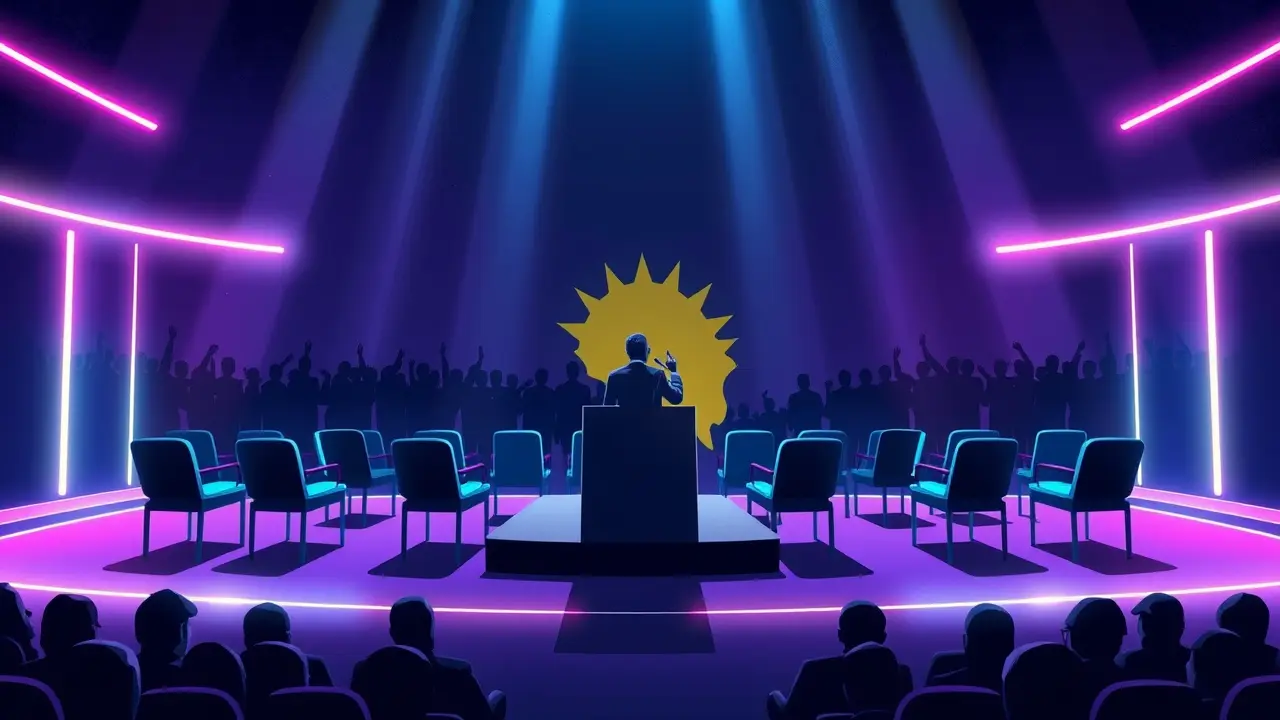Madagascar President Gives One-Year Resignation Ultimatum.
The political landscape in Madagascar has been plunged into a state of suspended animation following President Andry Rajoelina's startling declaration, a one-year resignation ultimatum delivered from a podium that faced a conspicuously empty hall where his most vocal opponents should have been. This move, far from being a simple promise, is a high-stakes gambit in a nation teetering on the brink of deeper unrest, a calculated throw of the dice in a political drama that has been escalating for months.The core of the crisis lies in the profound snub by the collective opposition movement, who flatly refused to attend the reconciliation meeting, rendering the president's dramatic pledge not as a moment of unity, but as a soliloquy performed for a divided nation. Their absence speaks louder than any speech, signaling a deep-seated distrust in the process and a belief that the president's offer is less a pathway to resolution and more a tactical maneuver to consolidate power while projecting an image of conciliation to the international community.To understand the gravity of this ultimatum, one must look back at Rajoelina's own political origins, which themselves were born from protest and street power, a fact that lends a bitter irony to his current position besieged by similar forces. The opposition's grievances are not new; they are a toxic brew of allegations concerning the president's dual French citizenship, which they claim should have rendered him ineligible for office, coupled with widespread anger over a cost-of-living crisis that has left ordinary Malagasy citizens struggling to afford basic necessities like rice and fuel.This economic desperation provides the tinder for the political spark, creating a volatile environment where protests can quickly swell from thousands to tens of thousands. The president's one-year timeline is itself a masterclass in political ambiguity—is it a genuine offer for a managed transition, a period to finish key initiatives, or simply a delaying tactic designed to sap the momentum of the protest movement, hoping that public fervor will wane over twelve long months? Analysts are sharply divided.Some see it as a potential circuit breaker, a face-saving measure that could avert a bloody confrontation and open a window for mediated talks. Others, more cynically, view it as a trap, a way to fragment the opposition coalition, which is itself a fragile alliance of different parties and personalities who may struggle to maintain a unified front for an entire year without a clear, immediate victory.The international community, particularly regional bodies like the African Union and SADC, watches with bated breath, wary of another African nation descending into prolonged instability. Their dilemma is acute: do they pressure Rajoelina for a swifter transition, potentially legitimizing the protestors' demands, or do they endorse his proposed timeline in the name of stability, thereby risking the alienation of a significant portion of the Malagasy populace? The consequences of miscalculation are severe.A failure to resolve this standoff could see Madagascar slide further into economic paralysis, scaring away the foreign investment it desperately needs and crippling its vital tourism and vanilla industries. Furthermore, it risks normalizing a political culture where ultimatums, rather than dialogue, become the primary currency of power.The streets of Antananarivo, which have already witnessed both passionate demonstrations and a heavy security presence, could become a permanent theater for this conflict. For the people of Madagascar, caught between a president they did not universally elect and an opposition currently defined by its absence from the negotiating table, this year-long countdown is not an abstract political game.It is a protracted period of uncertainty that affects their daily lives, their livelihoods, and their hopes for a stable future. The president has set the clock ticking; whether it counts down to a peaceful transition or a more explosive confrontation now depends on whether the empty chairs in that meeting room can ever be filled with willing partners for a genuine dialogue.
It’s quiet here...Start the conversation by leaving the first comment.
© 2025 Outpoll Service LTD. All rights reserved.
